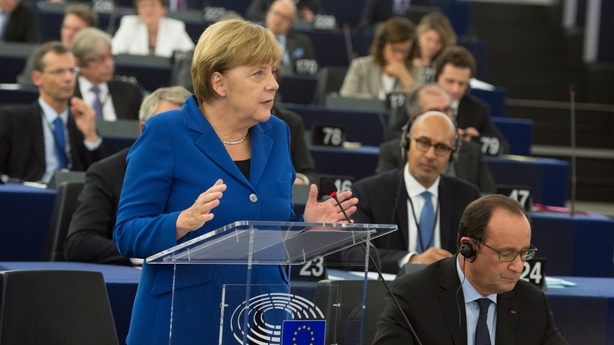The EU is beginning a new operation to board, search, seize and divert vessels suspected of being used for human trafficking across the Mediterranean.
Until now, the EU has focused on surveillance and rescue operations.
Ireland is not taking part in Operation Sophia, which is named after a baby girl who was rescued off Libya in August.
Belgium, Germany, France, Spain and the United Kingdom are among those taking part in the Operation.
So far this year, over half a million migrants and refugees have crossed the Mediterranean Sea to enter Europe, triggering the region’s biggest refugee crisis since World War II.
Human traffickers have been cramming refugees into overcrowded boats bound for Europe.Many of these boats have capsized killing thousands of people.
Those willing to take the dangerous journey across the Mediterranean have been fleeing war and poverty in the Middle East and Africa.
The International Organization for Migration claims that nearly 3,000 people have drowned while trying to cross the Mediterranean so far this year.
The EU launched the first phase of the operation in June, which involves naval surveillance and monitoring trafficking patterns.
The EU said the second phase called Operation Sophia aims "to prevent the further loss of life at sea."
Meanwhile, the Dublin Agreement, which registers refugees at the first country of entry, is obsolete, according to German Chancellor Angela Merkel.

Addressing the European Parliament, Ms Merkel said while its introduction was well thought out, the procedure is no longer viable.
She said a new approach of fairness and solidarity was required in the relocation of migrants.
Ms Merkel said cohesion and courage was required right now in Europe to fight trafficking and having hotspots to protect EU borders.
She said Turkey plays a key role and requires strong support in the management of refugees.
"We must not fall prey to wanting to act nationally in these moments", but together, she said.

